When we ’ re
together,
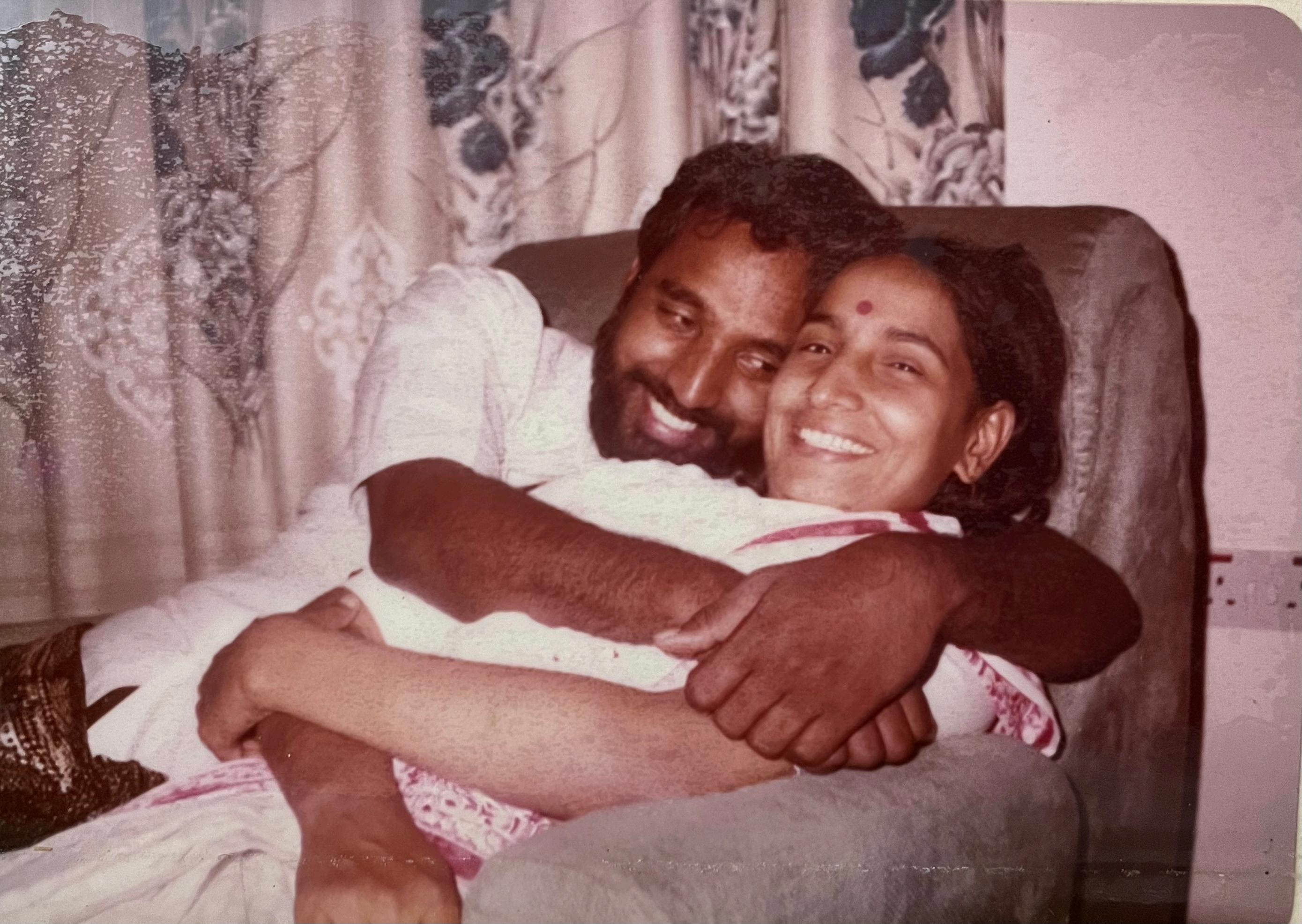
together, When we ’ re eye contact presence can look like

presence can look like

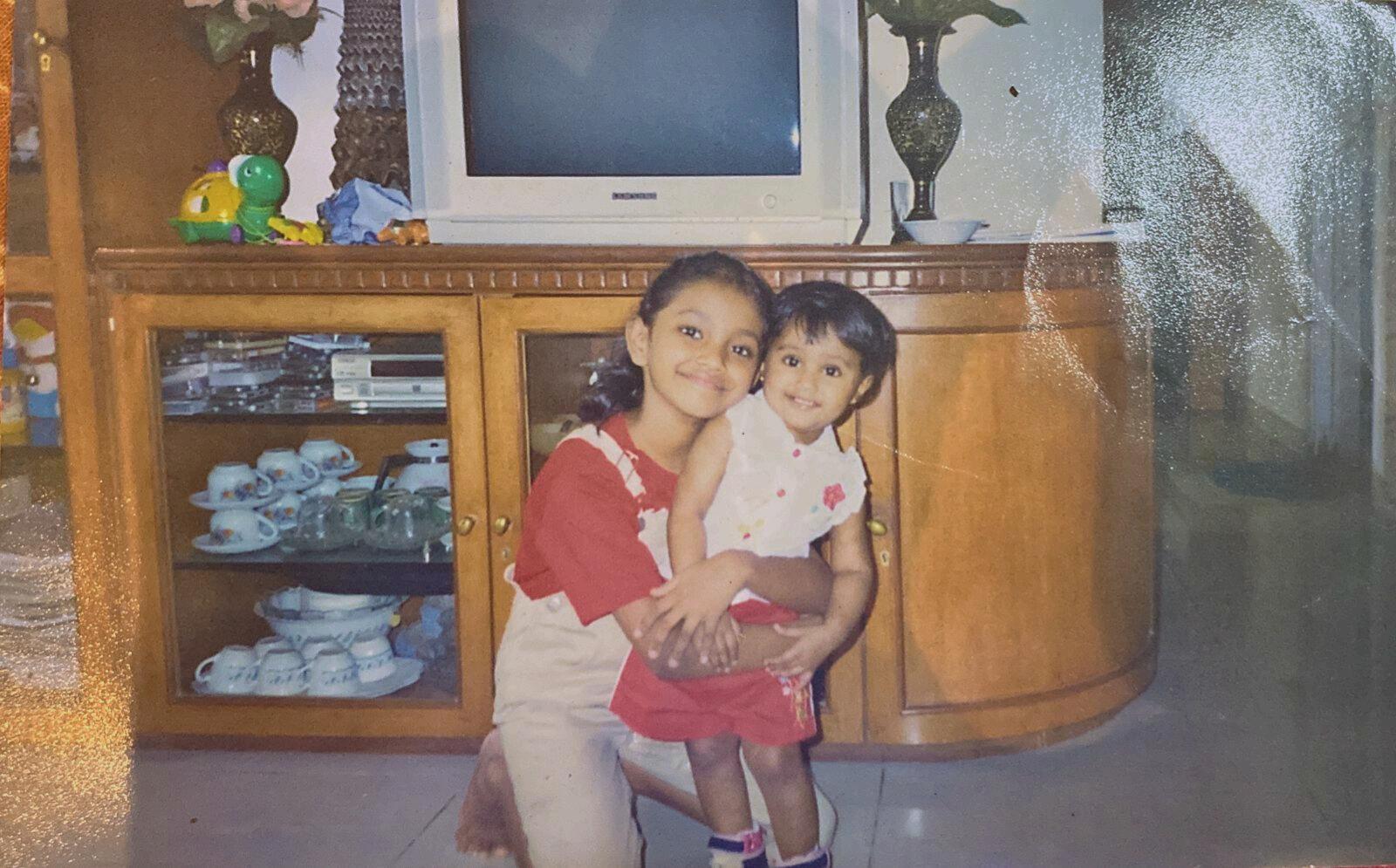
presence can look like

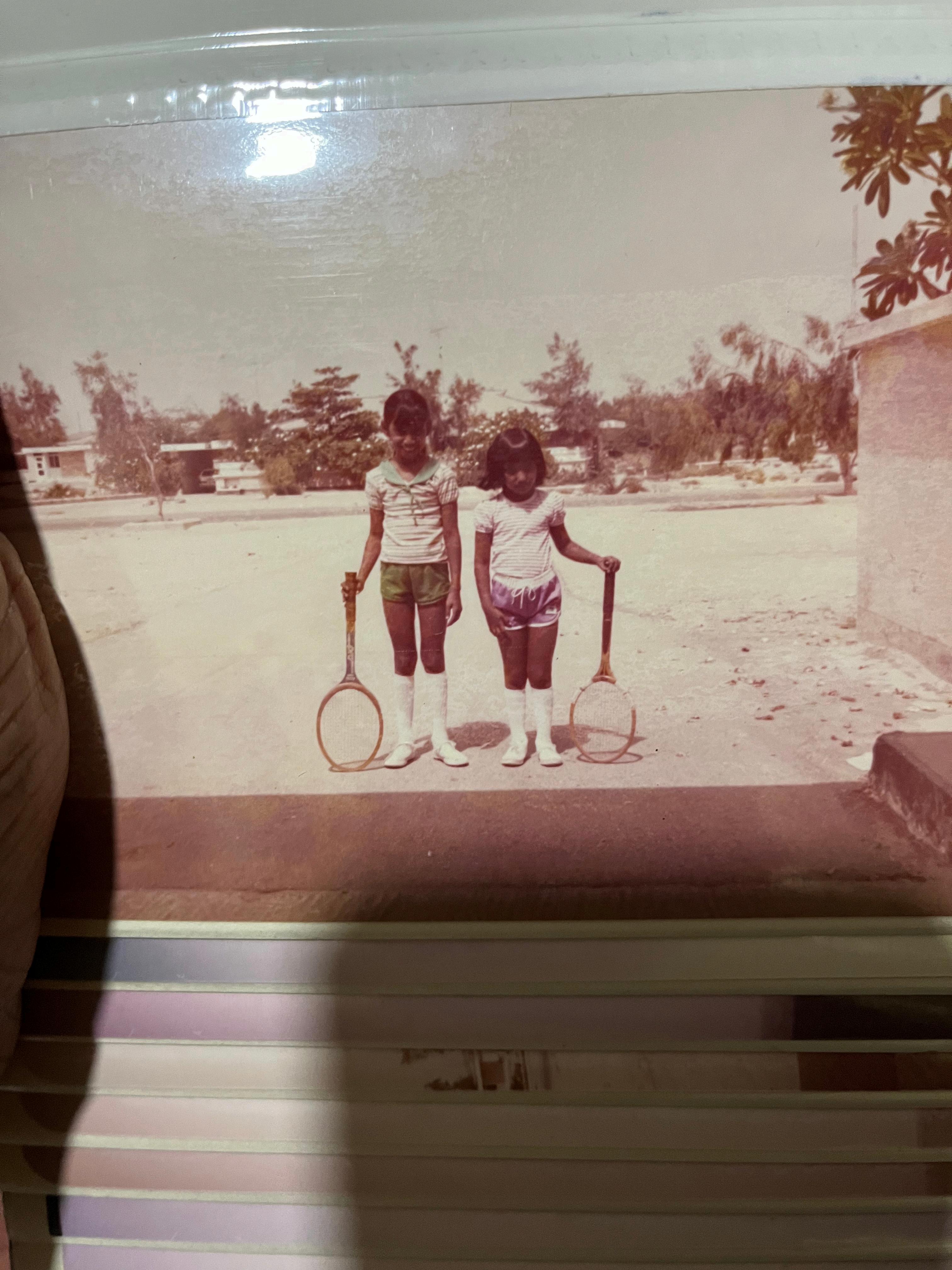
presence can look like


presence can look like presence can look like


presence can look like

together, When we ’ re quiet. presence is
14802816.4 + %
Million Young Adults Million Million
Americans are in long-distance relationships Live away from their families
International migrants worldwide Students study abroad annually
Long-distance connections are normal, widespread, and goes beyond just romantic relationships& are heavily reliant on tech to stay connected
Introduction
apart, When we ’ re presence takes other forms
Audio/Video Calls, Messaging
Direct Communication
Social media interactions, sharing content
Casual Social Presence
Synchronous gaming, watching something
Shared Digital Experience
It announces itself, it is intentional.
Location sharing, shared asynchronous artifacts, calendars, docs, lists
Passive Presence
Exploring intimacy, presence, and emotional labor in long-distance relationships
Research
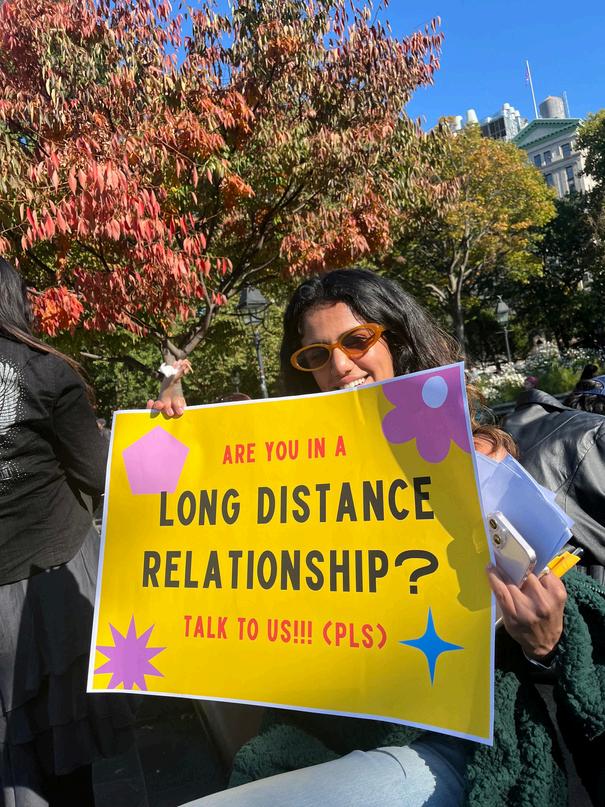
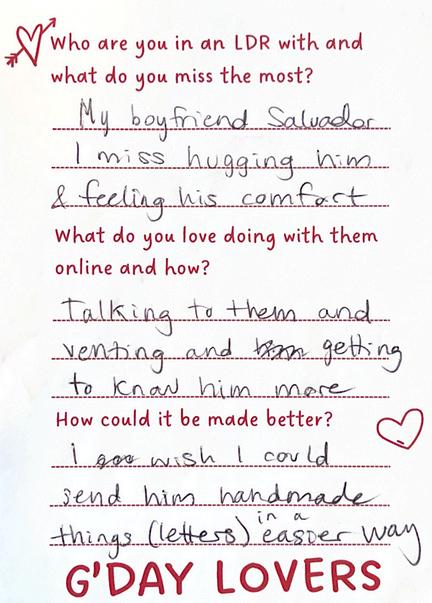
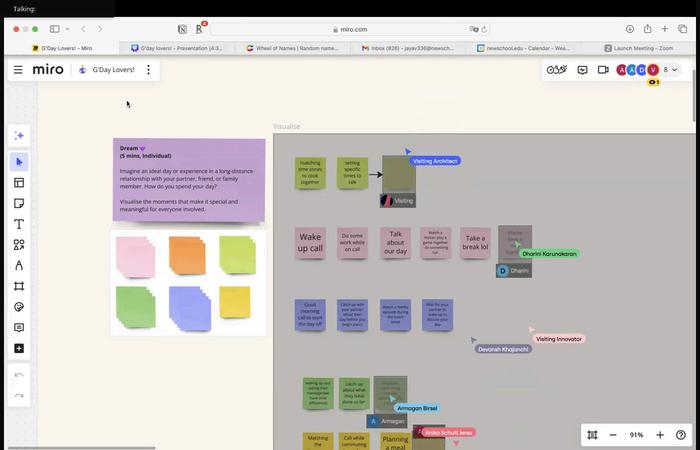
Landscape Scan
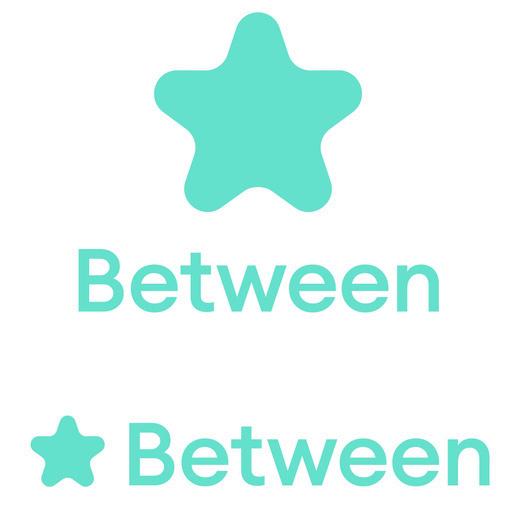










+ Ambient
Romantic + Performative Universal + Performative
Romantic + Ambient













The romantic LDR market is saturated
Existing tools prioritize performance over presence
Family and platonic connections are underserved
No clear solution exists for lowpressure, ambient care in platonic relationships
Exploring intimacy, presence, and emotional labor in students living away from home and their families
The 10-second test
“We asked participants to check in with a loved one in 10 seconds or less.”
Hypothesis in testing : Even when the intention is present, current communication tools make simple acts of care feel effortful and emotionally demanding.
Research Findings
Quotes
It needs to feel less like a message, and more like a signal.
Imagine a little check-in button, something quick and easy
I just want to feel independent without the guilt
Conversations used to just happen, now they have to be scheduled.
Unless it’s built into a platform parents already use, it’s hard to onboard them.
I don’t want to know where my son is all the time. That’s not the point
Something soft like ‘I’m home but unavailable’ would be perfect.
I wouldn’t be able to say what I wanted to due to the time, so I just don’t
The pandemic normalized virtual connection, now we need to design for everyday magic
Why is a simple call now so structured? It feels like a game
I share my location with friends, but not my parents, it’s too much
Too many texts, I need a calendar just to call people back.
of college students we interviewed experienced some level of homesickness and disconnection from their families that caused them distress
of parents we interviewed said that they are constantly balancing the desire to connect with the need to give space, most did not want to surveil or track
Heat Map
Opportunities for Intervention
How might we
help students stay connected without pressure to perform & find a way to check in quickly, even when overwhelmed or busy
How might we
help parents feel included in their child’s life, even from afar while providing gentle reassurance and not constant updates
Abridge
A quiet tool for emotional connection at a distance. Designed for pre-verbal care, abridge allows for one to show up without the pressure of conversation. For when words feel too heavy or time feels too tight allowing users to send simple gestures that gently appear on a shared living room.
Reduced Cognitive Load Emotionally Safer Communication Low Effort, High Meaning Ambient, On-going presence
Featuring Check-Ins
Send a soft gesture of presence check-in, emoji, or photo with a single tap
Make emotional expression effortless and non-verbal.
The Living Room
A quiet, visual space where all moments from your circle gently collect with a weekly recap
Create a quiet, persistent archive of care without the noise of a social feed
Smart Nudges
Gentle non-pushy reminders if it’s been a while
Gently support emotional consistency without guilt
Soft Reactions
Lightweight emojis or icons to acknowledge a moment
A day in the life with
abridge
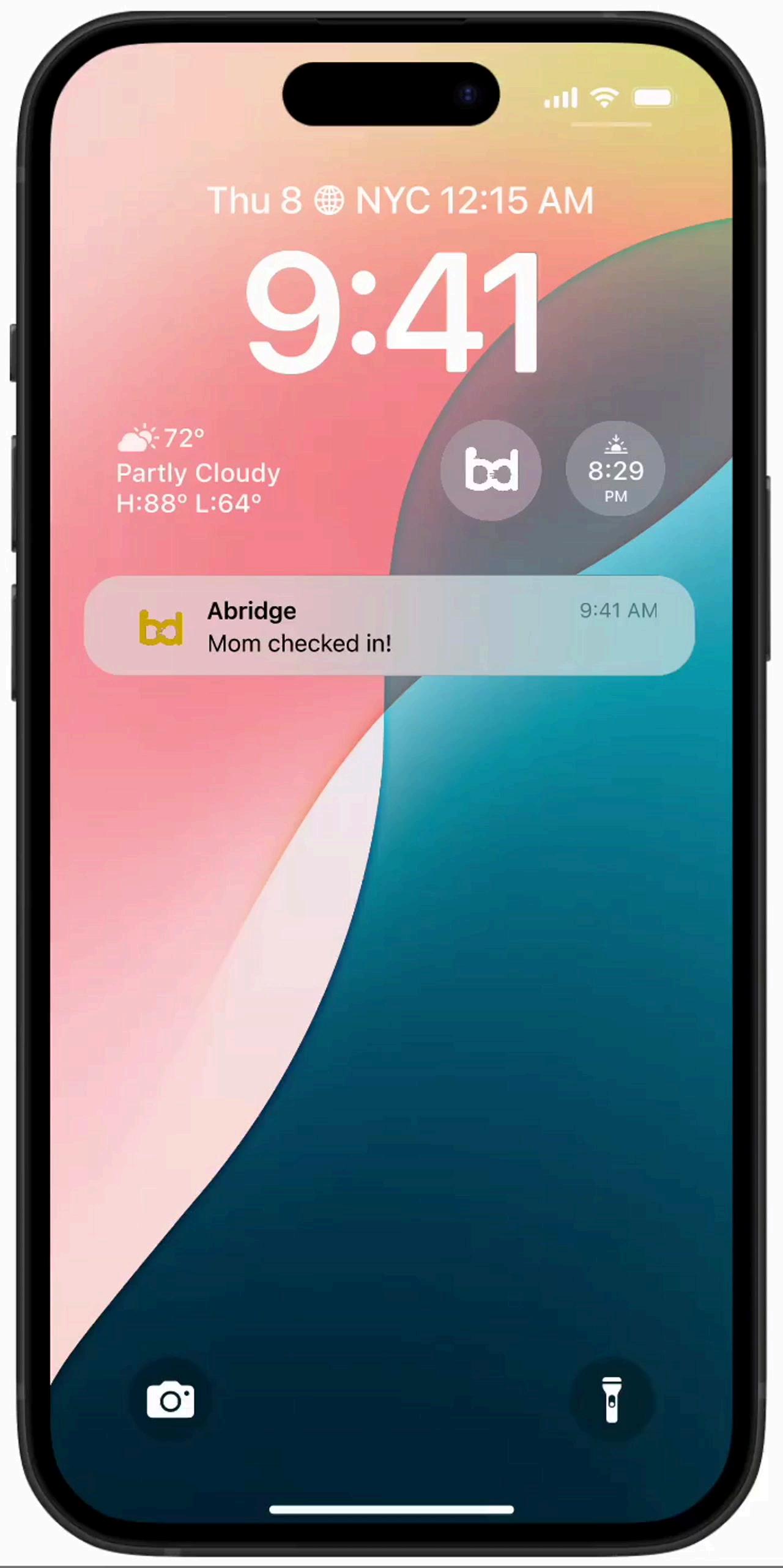
Sending & Receiving Check-ins
Watching them populate
Peruse through proof of care
User Flow
A week of using Abridge - This flow intentionally avoids traditional features like chat threads, typing boxes, or response pressure. The design prioritizes ambient presence and emotional accessibility
Send/Receive Checkins React to check-ins with emojis Check the living room to see proof of presence
Receive Memory Nudges Weekly Recaps
Potential Developments
1
Multiple Living Rooms
For different family groups - siblings, parents, cousins etc
2
Integrations
Optional integrations to reduce emotional friction - Calendar shows “study time” to loved ones
3
Audio Features
Send a warm toned 5–10 second voice check-ins
4
Custom Rituals
Create small recurring touchpoints like day based custom ritual (send a picture of your sky on mondays) to design your own rhythms of care.
Free-mium Gifting Partnerships
Free tier
One-Tap Updates
Shared Living Room
Weekly Recap
Premium tier
Archives of Recaps
Record/send voice notes
Rituals
Care as Currency
Parents or loved ones can gift Premium to students or family members to be presented as a gesture of quiet support
Institutions
Universities Counseling centers and support groups Organizations focused on wellness
Scalability
Soft Infrastructure, Strong Potential
Modular Architecture - The interface and flow can easily support multiple Living Rooms for different groups, custom rituals that scale across cultures & future integrations with calendars, smart displays, voice assistants
Emotionally Sustainable - Designed for low effort, high emotional return and scales without creating emotional exhaustion or engagement pressure
Cross-Demographic Usability - Because it relies on simple gestures instead of text, it works across generations (parents, kids, grandparents) and is culturally neutral and globally relatable
Long-distance
Friendships
Romantic Partnerships
Intergenerational Relationships
